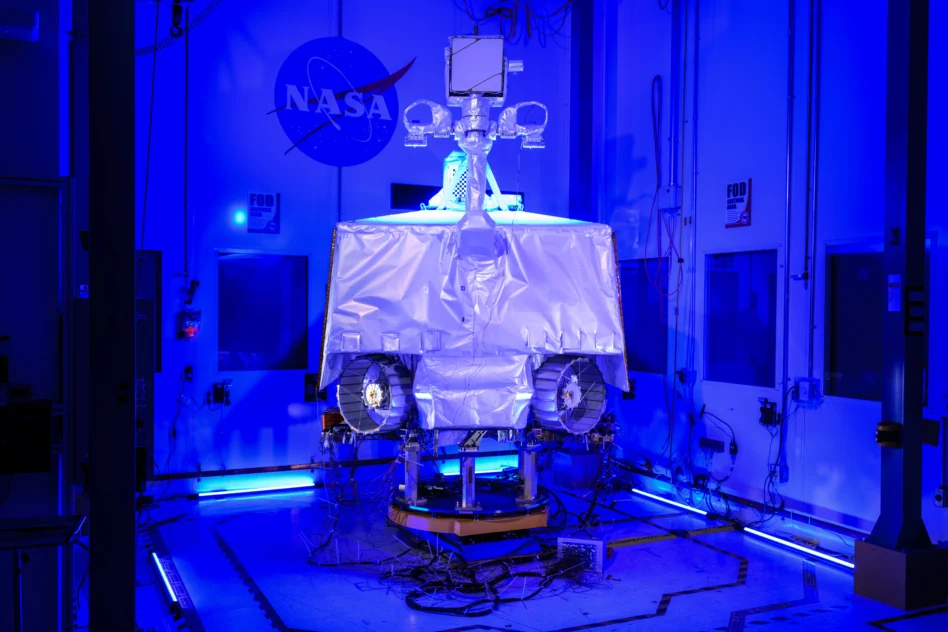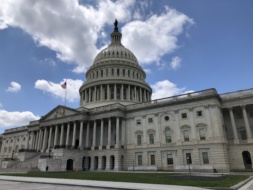VIPER isn’t going down without a fight.
Planetary science fans are asking Congress to step in after NASA unexpectedly pulled the plug on the VIPER—short for Volatiles Investigating Polar Exploration Rover—mission this month. More than 2,000 supporters ranging from engineers to space enthusiasts signed a letter last week led by the Planetary Society asking lawmakers to add the program back into NASA’s budget.
“VIPER remains a key part of the United States’ roadmap for a return to the Moon. Without it, the United States risks losing its leading position in lunar exploration,” the letter says. “The risks to other NASA missions, including the return of astronauts to the Moon as part of the Artemis program, are also heightened because of the loss of knowledge about the lunar South Pole terrain and properties.”
In addition to an appeal for international leadership, the letter also makes a cost argument: NASA has already sunk $450M into the rover. It intends to spend another $323M to launch an inert “mass simulator,” like a lunar rover paperweight, instead of moving forward with the mission.
Background: NASA canceled the program after it faced growing costs and schedule delays. The mission was slated to launch in late 2024 to hopefully answer some of the many questions about the location of water ice and other resources on the Moon.
The fully-built robot could live to fly another day. International agencies and commercial partners have until Aug. 1 to pitch NASA a plan for using the rover intact. If it gets no takers, the agency plans to disassemble the rover and have its components fly on other missions.
Lack of a champion? It’s easy to attribute the deprioritization of this and other planetary science missions such as Mars Sample Return to the lack of a champion for the causes on Capitol Hill à la former Rep. John Culberson’s vigorous defense of Europa Clipper.
But Jack Kiraly, government relations chief at the Planetary Society, said the lack of a political figurehead isn’t causing trouble for NASA’s planetary science ambitions, pointing to more dispersed support on Capitol Hill, including from the newly re-established Planetary Science Caucus.
“It boils down to the budget. There’s not a lot of wiggle room,” Kiraly said. “It’s just not the same type of growth we were expecting a year and a half ago.”
The lack of prioritization now could “absolutely” leave a gap in American planetary science activities as other nations, including China, Japan, and India, boost investment in their own missions to study the solar system, Kiraly said.
Leading the charge: Kiraly highlighted a handful of lawmakers primed to go to bat for the funding for planetary science programs, including:
- Rep. Judy Chu (D-CA)
- Rep. Don Bacon (R-NE)
- Rep. Glenn Ivey (D-MD)
- Sen. Chris Van Hollen (D-MD)
Bottom line: Van Hollen was behind a successful amendment to the Senate’s fiscal 2025 NASA appropriations report language that would direct NASA to establish a Habitable Worlds Observatory Project Office at Goddard Space Flight Center. Sen. Marco Rubio (R-FL) also supported a report language amendment that encouraged NASA to invest in its spaceport infrastructure.
Other highlights of the spending bill, which was released last week:
- $25.4B NASA topline, $559M more than fiscal 2024
- $7.65B for exploration, $30M more than the president’s fiscal 2025 request
- $236M for NEO Surveyor mission to hunt for asteroids





